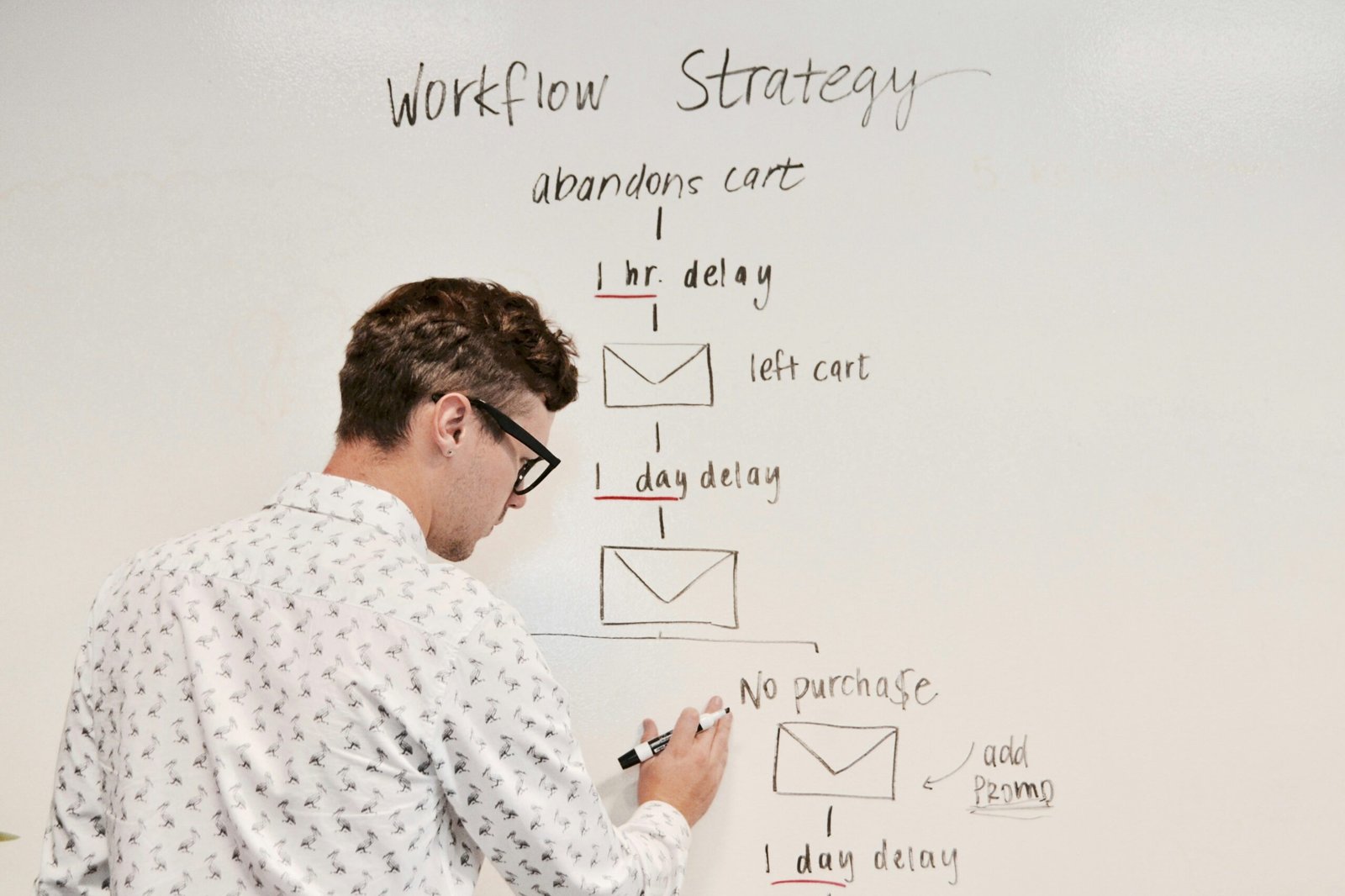Customer Retention Strategies for B2B E-Commerce Businesses: Beyond Acquiring New Customers
Importance of Customer Retention in B2B E-Commerce
Customer retention is a pivotal element for the success and sustainability of B2B e-commerce businesses. Unlike in the B2C sector, where customer interactions can be transient and transactional, B2B relationships are often characterized by their depth and longevity. One of the primary reasons why customer retention is crucial in B2B e-commerce is the significant cost-benefit ratio favoring the retention of existing customers over the acquisition of new ones.
Acquiring new customers typically demands extensive marketing efforts, including advertising, outreach, and promotional activities. These initiatives can be resource-intensive, both in terms of time and financial investment. Conversely, retaining a customer not only costs less but can also offer a higher return on investment. According to various industry studies, it’s generally acknowledged that acquiring a new customer can be five times more expensive than retaining an existing one. Furthermore, the probability of selling to an existing customer is significantly higher than that of selling to a new prospect.
Long-term relationships with existing customers are more than just financially advantageous—they are instrumental in driving continual revenue. These established relationships foster trust and reliability, encouraging customers to make repeat purchases and consider upselling opportunities. Over time, the cumulative value of a retained customer grows, often surpassing the immediate gains from a single transaction with a new customer.
Customer loyalty plays a crucial role in this dynamic. Loyal customers not only contribute to a steady revenue stream but also serve as advocates for the business, often spreading positive word-of-mouth and influencing potential clients. Loyal customers are also more likely to provide constructive feedback, enabling businesses to refine their offerings and enhance service quality continually.
In essence, investing in customer retention strategies means nurturing valuable connections, ensuring repeat business, and bolstering brand reputation. As businesses strive for growth and competitiveness in the B2B e-commerce landscape, prioritizing customer retention emerges as a foundational strategy that leverages established relationships to fuel long-term success.
Building Strong Relationships with Existing Customers
In the realm of B2B e-commerce, nurturing strong relationships with existing customers is critical for sustained success. Establishing and maintaining these bonds starts with personalized communication. Tailoring interactions to address the specific needs and preferences of each client not only shows that their business is valued, but also builds a foundation of trust. Employing CRM tools to segment customers based on their purchasing behavior and customizing communications accordingly can significantly enhance customer engagement.
Understanding and meeting the specific needs of B2B customers is another vital aspect. This involves a thorough analysis of their business operations and adjusting offerings to better serve them. By regularly conducting needs assessments and gathering feedback, companies can stay attuned to evolving customer requirements. This proactive approach ensures businesses can propose solutions that are closely aligned with client objectives, fostering a deeper connection.
Exceptional customer service stands as a cornerstone in building and strengthening customer relationships. In the B2B space, timely and effective support can markedly influence client satisfaction and loyalty. Providing responsive, knowledgeable assistance, and swiftly resolving issues can turn potential frustrations into positive experiences. Utilizing dedicated account managers or support teams can further assure clients that their concerns are understood and promptly addressed.
Implementing loyalty programs can also reinforce customer bonds. Offering incentives such as discounts on bulk orders, exclusive access to new products, or reward points for repeat purchases motivates customers to continue their partnership. These programs not only provide value but also show appreciation for their ongoing business, encouraging repeat engagement.
Finally, trust and reliability are paramount in B2B relationships, particularly for long-term contracts and bulk orders. Delivering consistently on promises, maintaining transparency in communications, and demonstrating integrity in dealings cement the trust and reliability clients seek. Companies that prove dependable partners are more likely to retain their customers, as they provide a sense of security and reliability that is essential for long-term collaboration.
In essence, the concerted effort to personalize communication, understand client needs, offer unparalleled customer service, create rewarding loyalty programs, and uphold trust and reliability can significantly strengthen relationships with existing customers, ensuring long-term success for B2B e-commerce businesses.
Leveraging Technology for Customer Retention
In the dynamic landscape of B2B e-commerce, leveraging technology plays a pivotal role in customer retention. One of the primary tools that businesses can utilize is Customer Relationship Management (CRM) systems. CRMs help in organizing customer data, tracking interactions, and providing insights into customer preferences and buying patterns. This allows businesses to tailor their approach to meet individual client needs, resulting in a more personalized and engaging experience.
Loyalty programs, another technological initiative, offer rewards and incentives to repeat customers. These programs foster a sense of appreciation and encourage ongoing business. Implementing a robust loyalty program can differentiate a company from its competitors, serving as a long-term investment in customer satisfaction and commitment.
Data analytics is essential as it provides actionable insights into customer behavior. By analyzing transactional data, browsing history, and other customer interactions, businesses can identify trends and anticipate future needs. This information is vital for creating targeted marketing strategies and enhancing product offerings to align with what customers are seeking.
Automated marketing campaigns, enabled by advanced software, streamline communication with clients. These campaigns can include email marketing, personalized recommendations, and timely notifications about promotions or new products. Automation ensures that the right message reaches the right customer at the right time, increasing the likelihood of engagement and retention.
The integration of various software systems is crucial for creating a seamless and personalized experience for the customer. When CRM systems, loyalty programs, data analytics platforms, and marketing automation tools are interconnected, businesses can deliver cohesive and consistent interactions across all touchpoints. This unified approach not only enhances operational efficiency but also significantly boosts customer satisfaction and loyalty.
Using DFY Newsletters to Retain Customers
In the realm of B2B e-commerce, customer retention is as critical as customer acquisition. One effective strategy for retaining customers is the use of Done-For-You (DFY) newsletters. DFY newsletters are pre-designed and pre-written content solutions tailored to meet your business’s specific needs, offering a seamless way to stay connected with your existing customer base.
DFY newsletters can be customized to include a range of content types, ensuring they provide relevant and valuable information. Product updates are a crucial component, as they keep your customers informed about new offerings, enhancements, and any changes that may influence their purchasing decisions. Additionally, including industry news helps position your business as a thought leader, staying current with market trends and competitive landscapes. Educational articles, on the other hand, serve to inform and empower your customers, deepening their understanding of your products or services and how these can solve their specific challenges.
Metrics play a vital role in assessing the effectiveness of DFY newsletters. Key performance indicators (KPIs) such as open rates and click-through rates (CTR) are essential for understanding how well your audience is engaging with the content. Open rates measure the percentage of recipients who open the newsletter, indicating the effectiveness of your subject lines and overall relevance to the audience. CTR measures the proportion of readers who click on links within the newsletter, reflecting the content’s compelling nature and the reader’s intention to learn more or take action. Additionally, overall engagement metrics, such as the time spent reading the newsletter and social media shares, provide deeper insights into how well your communication resonates with the audience.
Utilizing DFY newsletters not only saves time but also ensures consistency and quality in your communication strategy. By providing valuable content that speaks directly to your customers’ needs and interests, you strengthen relationships and enhance customer loyalty, a cornerstone for long-term success in B2B e-commerce.







